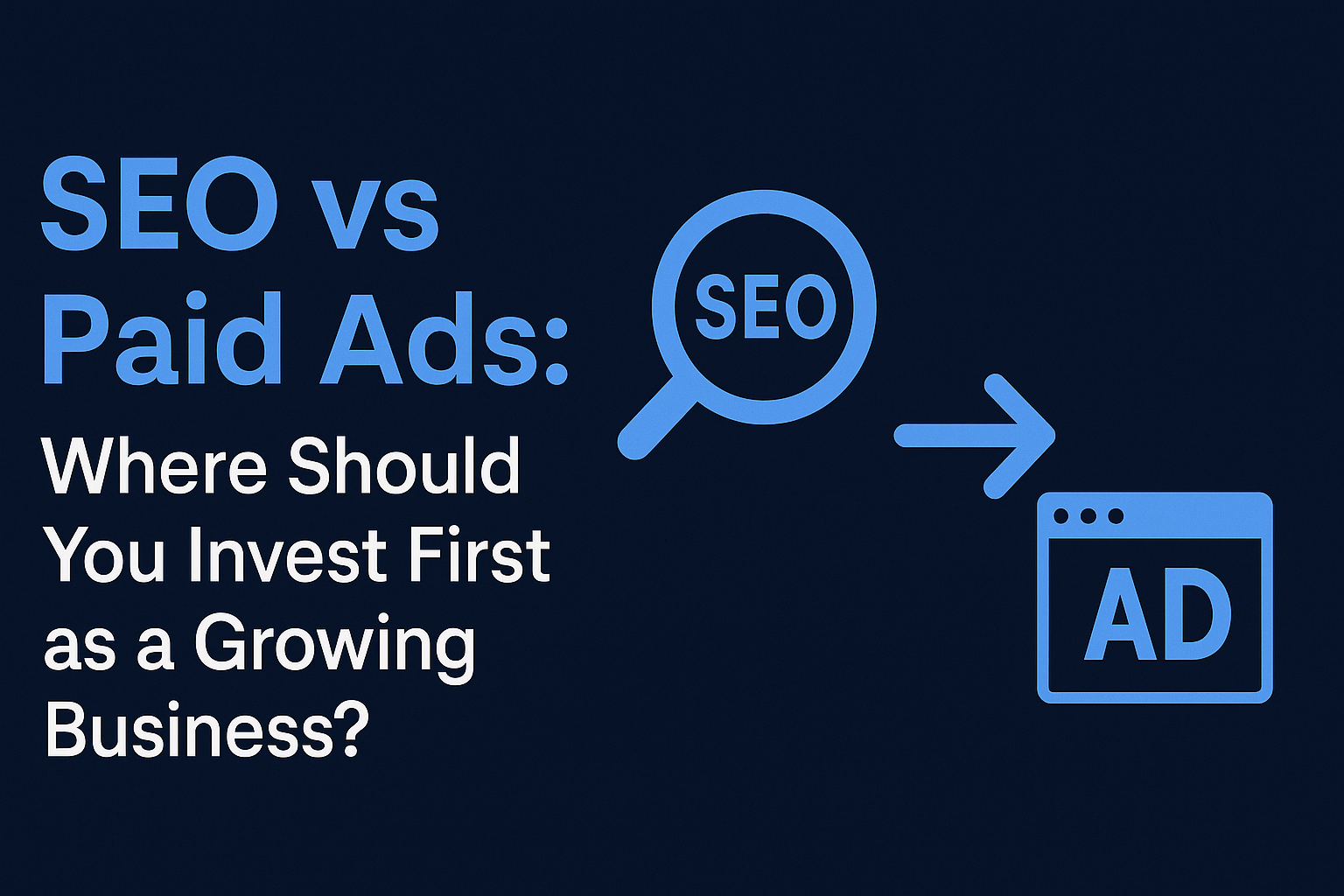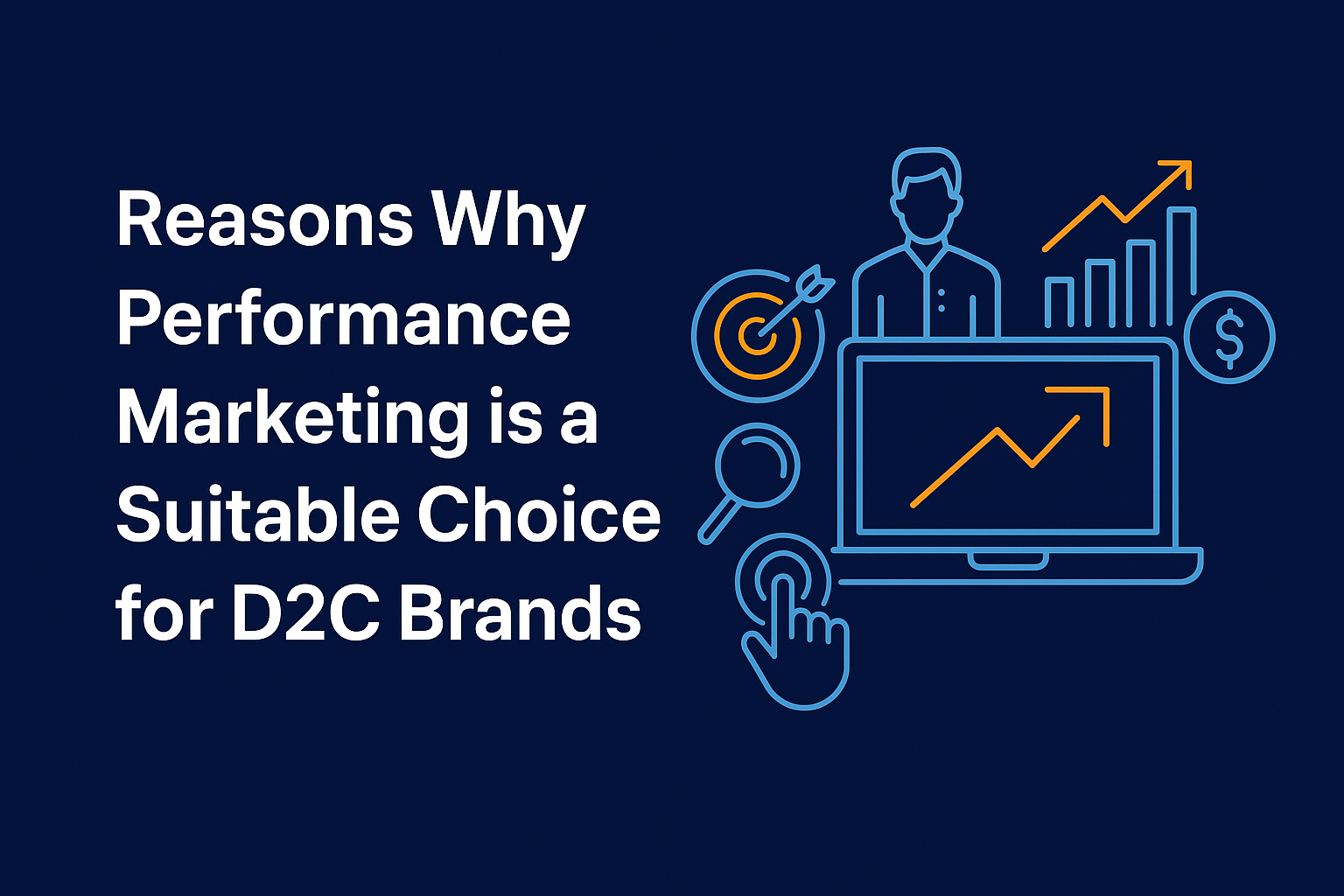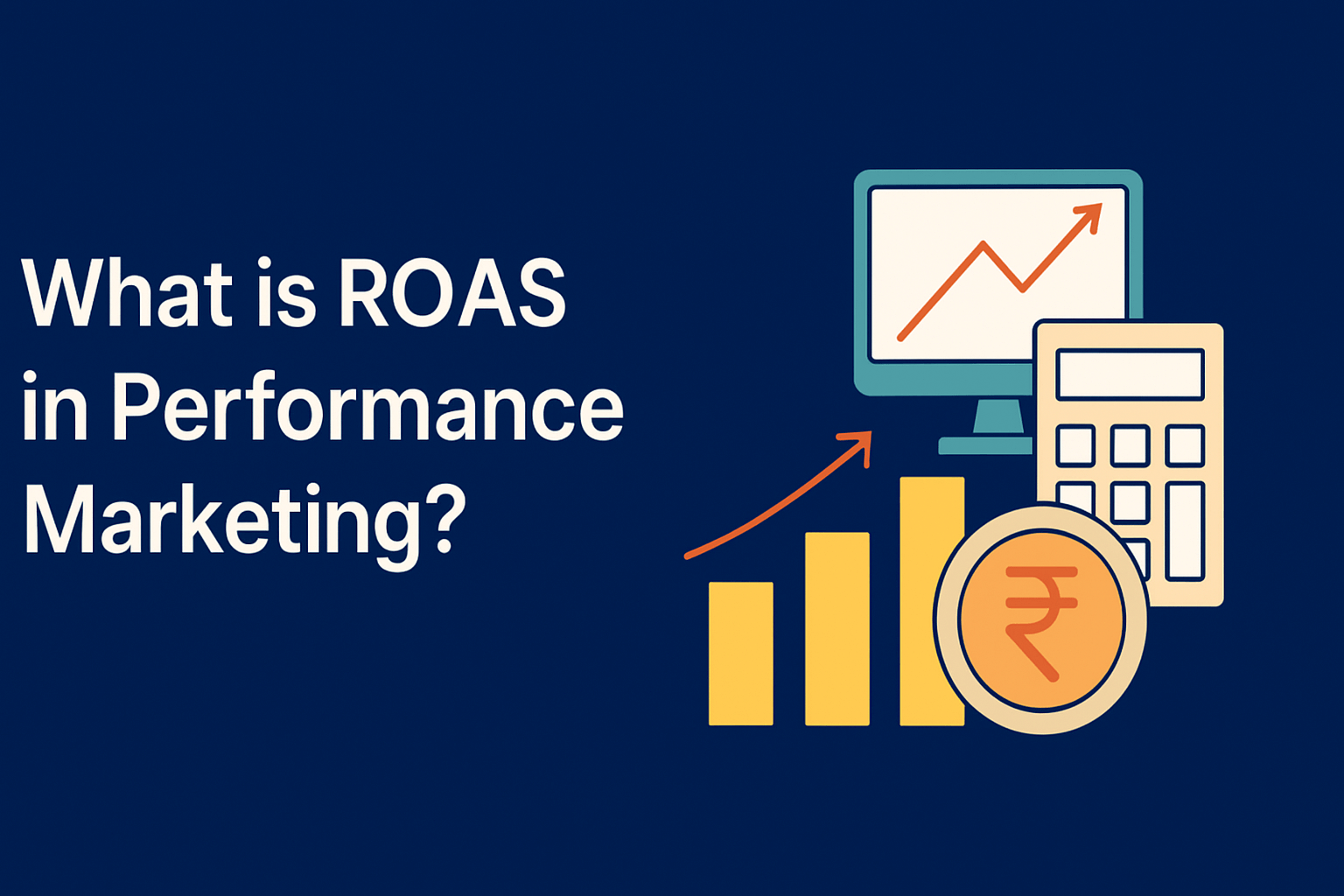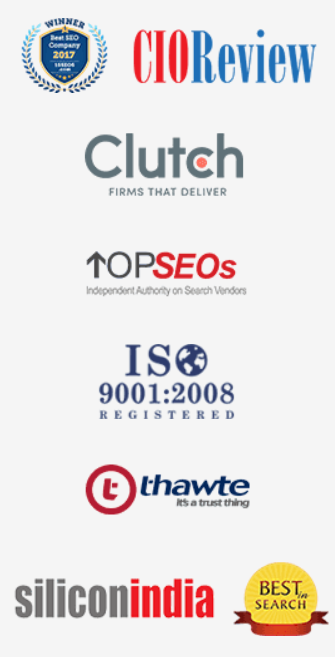In today’s dynamic business environment, maintaining competitiveness and achieving desired outcomes is of utmost importance. Performance and industry reach are pivotal factors that propel success. To keep pace with the rapidly changing market, your business must align its strategies and operations with these transformations.
This can be achieved through strategically planned marketing efforts. Businesses have the opportunity to build their performance and achieve their target goals to understand what their target audience requires. With the industry trends the attitudes and approaches of audiences are also shifting. As per a recent data trend, 49% of consumers are adored and influenced by influencers on social media channels. But these users hardly make any decision without reverifying the influencers. That’s where the marketing tactics come in, and the need for strategically planned performance marketing campaigns.
With the small example, you get the brief. For example, LinkedIn displays its professional’s personal information on its platform. This information is sold to advertisers and from there they collect the data and sell it to marketing agencies. Now the agencies find their potential audiences and boost their brand’s overall performance.
This is the LinkedIn ad platform especially driven to perform specific goals. Google does the same. The major goal is to target small niche audiences using tracking attributes and increase performance. To understand detailed information about performance marketing and its benefits, let’s dive deep into the blog.
Are you ready? Let’s go!
Table of Contents
ToggleWhat is Performance Marketing?
Performance marketing is comprehensive of both digital marketing and advertising programs to achieve a specific goal like sales or lead.
It contains an umbrella of marketing practices like Lead Generation, Search Engine Optimization, Social Media Marketing, Email Marketing, Paid Promotion Campaigns, Display marketing, Affiliate Marketing, Influencer Marketing, and many more.
With performance marketing, you increase sales and analyze the performance as well whether it reaches a potential audience or not. There are fixed matrices to achieve goals or quantitative results with performance marketing services.
Today most businesses adopt these new marketing trends to improve their company status and performance. Now you can optimize your business’s financial goals and pay only when you achieve the result.
Some other benefits that you get from performance-based marketing.
- Drive sales
- Improve customer acquisition
- ROI for both; marketing budgets and corresponding budgets
- Improved Traffic and sales
Why Performance Marketing is in Trend Nowadays?
Performance marketing is the prime buzzword for the industry nowadays. Consumer preference is not on a single media. It has been widely spread to different sources.
So, the entrepreneurs design and schedule their marketing campaigns to meet specific goals and improve overall performance. This helps the performance marketing consultant to track business outcomes completely. Basically, it is the effort that moves you in the right direction.
For example, the influencers always promote the service and its brand and tell you to use their code before purchasing the same product.
As performance marketing is the set of influencer marketing, social media advertising, marketing automation, and many more things, it is the hot buzz trend nowadays. As per market stats, Online advertising spending in the world was found to be $521B in 2021 and is estimated to reach $876B in 2026. In recent years the spending on advertising has increased a lot. Today big companies are not afraid of investing a large part of their money to trigger audience attention. Some of the major trends in this marketing are influencer marketing, podcast advertising, D2C growth, data privacy & regulations, etc.
Examples of Performance Marketing
The above definition and brief discussion may have made you aware of what it means to have performance marketing campaigns for your brand. But still, you might be confused regarding what performance marketing looks like in the actual scenario. As there is no specific approach or strategy to performance marketing it is always implemented as a mix of various digital/performance marketing tools and approaches. Hence the potential examples of performance marketing can be:
- Ads on Social Media Platforms: You must have observed that nowadays the ads on social media platforms are not easily recognizable. They easily get blended with the platform’s appearance delivering a satisfactory experience to the users. Hence, such effectively helps to attract users and to promote the brand’s products and services. Further depending on the shifting industry trends, performance marketers are adopting several improvements to suit the market needs.
- Ads on Google Search Results: Whenever you search for a product or service on Google, you must have observed some of the links appearing either on the top of the results or the bottom with the tag “Sponsored”. You might sometimes ignore the tag and simply click on it unknowingly. It is because of the same appearance of the ad and other search results. It is a perfect example of modern-day performance marketing campaigns being adopted by marketers.
- Affiliate Marketers: Further a key example of performance marketing is the use of affiliate marketing approaches. Certain websites or service providers have affiliate programs to expand their reach. Through such a program, the marketers aim to target audiences and set up a chain of influencers, who can promote the brand’s products and services. Further, in exchange for any product being sold by the affiliates, they are provided with a commission or a small portion of the profit. These affiliates can be micro influencers or existing customers of the brand.
- Content Marketing: A common and yet creative example of performance marketing is using content to promote brand awareness and presence. Through such an approach the marketers create unique and engaging content to attract and engage audiences. Further, the content is usually posted on social media platforms or the websites in form of blogs. These blogs/content aim to educate the audience along with providing them relevant information about the products/services they are promoting.
Want to know more about real-life examples of performance marketing and how it works, you can check out the projects handled by experienced performance marketers at Verve Online Marketing. Our Performance Marketers have adopted innovative approaches to attract and retain customers for our clients. To know in detail about the performance marketing tactics and other relevant aspects you must continue reading this blog.
Performance Marketing v/s Digital Marketing
The above definitions and your existing knowledge might have led you to the conclusion that Digital Marketing and Performance Marketing both are the same. You are not alone in this journey, there are many more who at the initial level consider both to be the same. But they are not.
Initially, it was just digital marketing, but with the improvements in the technological landscape and online competition, several changes/innovations have been adopted. Hence, it can be reflected that Digital Marketing is a subset of Performance Marketing. Various factors differentiate performance marketing from digital marketing.
Such factors can be identified as
- Digital Marketing focuses only on brand awareness, but Performance Marketing aims towards improved conversion for the brand.
- Digital Marketing Campaigns are vague, whereas Performance Marketing Campaigns have specific aims and targets.
- Digital Marketing results cannot be measured and evaluated, whereas in Performance Marketing specific analytical approaches are used.
- Digital Marketing involves a specific set of tools that mostly aim towards social media marketing. However, Performance Marketers utilize a range of ad formats to promote their client’s products and services.
How Performance Marketing Works/Performance Marketing Strategy
To build a wise performance marketing strategy we have measured the following practices that are good to adopt.
The practice is followed with everyone’s effort; it is not a single-handed task. It is very crucial to keep an eye on your performance marketing strategy. Let’s start the process. You need to think in the below way to start your plan of marketing strategy.
Step 1: What is your goal? Evaluate it, which areas are you going to target
- Brand awareness
Brand awareness is the major goal for marketing companies. If you are a client that needs to upscale their revenue and sales in a short time, then your major goal is to be aware of that individual brand and similar brands as well. You should have knowledge of the specific brand that needs a performance marketing goal and design a value-driven plan for it.
- Traffic increase
How to increase traffic is the next goal? You should focus on how only potential visitors come forward to the website or portal so that they can convert into customers.
This method is actually a tactic that marketers have followed to target frequently the same visitor who denies the first time to become a customer.
- Engagement
Once the visitor comes to your channel, if you have followed the above things and he has the proper knowledge of what he is looking for then he may be converted into the conversion. There are many ways to engage visitors to your platform or website.
- Lead generation
If the user is converted into a conversion then he is termed as lead generation.
- Sales
Once the lead is converted, the business executive connects with the client, offers the understanding of services, and yes you convert him to sales.
Step 2: Advocate your Channel presence
A performance marketer makes use of different ad formats and types to enhance your presence across global platforms.
- Social media
Social media is the ideal platform that allows marketing agencies to associate with influencers for their branding. The top social media influencing channels are Instagram and Facebook.
- Native advertising
Now, this is the natural look-like theme that displays advertising and content both in sync. It is the major way the performance marketer showcases both paid ads and organic content in a lane to give users a natural state.
- Affiliate advertising
The major goal of affiliate marketing is to convert action into sales. Such as Amazon affiliate marketing, where once the user hits the affiliate link and purchases anything, the business gets a commission on it.
Step 3: Create a Campaign
- Understand the pain points of your target audience
It is a healthy practice of performance marketing agencies to get deep insight into the audience. With that understanding, the digital marketer focuses only on those areas and starts building their campaigns accordingly.
- Create ads and images
You must create the ads and images relevant to the ideal campaign to target the desired audiences. For Facebook-sponsored advertising, you need not place anything randomly that does not match the business campaign goal. With Facebook advertising you might have a goal like increasing traffic or brand awareness, so create the campaign for a specific goal and post ads with relevance.
- Headlines
The top attractive headlines are the signature to grab most audiences and make them impressions and visits.
- Design and schedule
Once you have followed the above points the next thing is to design the ad post and schedule it at the time when you have the possibility to reach a large audience.
Step 4: Optimize campaign
- Sales are not the only thing to aim
When you are preparing the campaign goal your move is to make it optimized. Only the optimized campaign shows you the result that is desired. It’s not always that you have sales-specific goals.
- Identify your channel
Identifying the channel to whom you should target is an important aspect. Every channel has unique benefits so first, evaluate what are your requirements and then plan the specific goal and campaign desired for that channel. Optimized goals bring you more compared to any other thing.
- Audience and campaign
Focus on the niche audience for the brand. And then start preparing your campaign based on that. If the campaign is not matched with your specific goal then you have a chance that vanish your efforts.
Step 5: Handle potential pitfalls
- Brand safety
Brand safety is a must for every brand or business. You won’t survive in the industry if your brand is not aligned with security measures.
- Privacy regulations
Every brand should follow privacy rules and anatomy that are publicly disclosed for companies to follow any practice.
- Compliance related issues
This is included in the compliance and regulatory services. There should be no major issue with your marketing agency. You perform performance marketing management for businesses.
- Online fraud and click fraud and bot traffic
Aware of online fraud. If you are doing any such tactic you will be under the eyes of legal departments. Avoid bots to increase the traffic of any channel. Google algorithms are advanced and easily find out any such tactic and surely vanish your brand identity.
Types of performance marketing
Till now we have understood every factor that is crucial to follow performance marketing. It can be defined as a tool that helps enhance a brand’s performance and meet the desired goal. But it is equally important for us to know what different types/practices of performance marketing leading agencies use to make your brand grow digitally.
Below are some of the key performance marketing strategies that focus on important metrics to help businesses achieve market success beyond just sales. Check out here;
Display or Banner Ads
Display ads are the most common type of ads used for campaigning. These ads are placed at the most popular spaces on the platform like a newsfeed, top, and bottom of pages, suggestions advertising, etc. The main intent is to target audiences from the places where they are mostly surfing on the website.
But always keep in mind to avoid banner blindness which means do not put anywhere display ads just to annoy the audience. Otherwise, the user sooner loses focus from the channel. Place the content as interactive to improve the audacity of the platform.
Native Advertising
It is the traditional way of advertising via sponsored videos. With the help of paid ad campaigns, businesses used to target and attract audiences to the platform. These ads are popular on every major platform like Google, Facebook, and YouTube. Sponsored content is the defined content that is especially displayed with online marketer efforts.
With native advertising both the organic and paid content are live at the same time. This gives a familiar and natural experience to audiences on the platform.
Content Marketing
You simply can’t ignore the presence of content marketing in the organic or sponsored world. It is the most top performance medium through which brands improve their campaign and meet their goals in the planned time.
As per a recent survey, the content marketing strategy establishes three to four times more traffic alone for the companies.
The main idea why companies adopt content marketing strategy for their goals is to give relevant and well-contextual information to the users, with formats like social blog posts, ebooks, case studies, reviews, etc.
Social Media
Social media is heaven for marketing practice for any business. It is the medium where every zone of the audience is present. It gives a quick reference to the audience to access sponsored content.
Many influencers and other performance marketers adopt social media channels to spread their knowledge to their target audience. Some of the key social media marketing tools include Instagram, Facebook, Linkedin, and Twitter.
Search Engine Marketing
You heard about marketing on search engines and optimised it to improve the reach of audiences on it. For performance marketing, the main focus of businesses is on cost per click i.e. CPC. It means how to improve the user’s click on the niche platform.
Search Engine Optimization
When you focus only on organic-driven sales, then SEO search engine optimization is an important trait for businesses to follow. It raises the performance of the website obliged by the Google algorithms. But how this works is the real mystery.
The Google algorithmic crawler tracks the site map and backend interlinking and authority of the website. If the algorithm fulfills every aspect of the niche website then it instantly boosts the website’s rank. This is the organic tactic where the business does need not to pay any money.
Affiliate Marketing
In affiliate marketing, the advertiser pays a commission to the agency for every action like a sale finished by the user. This involves some traction like coupon codes and incentives.
Top Performance Marketing Channels
There are certain channels or platforms that Performance Marketers focus on to implement the above-defined types/strategies of Performance Marketing. These platforms are defined as the Performance Marketing Channels. There are several Performance Marketing Channels that are used by marketers, but the most common ones are:
Social Media Platforms
The Performance Marketers aims to enhance your audience reach by targeting social media platforms. Some common platforms being used by marketers include Instagram, Facebook, Twitter, LinkedIn, Pinterest, & Snapchat. The marketers create unique campaigns as per these platform requirements and aim to target a specific set of audiences.
Search Engine
Among the diverse channels, being used by marketers, a significant performance marketing channel is the Search Engine. The SEO strategies and Google Ads crafted by performance marketers aim to boost your brand’s position on such search platforms.
Streaming Platforms
Performance Marketers are well aware of the existing and emerging market trends and shift to the platforms accordingly. Accordingly, a trending platform that is being adopted includes Streaming Platforms. These Streaming platforms include the platforms where you can consume video content such as YouTube and OTT platforms.
Mobile Marketing
Performance marketers are well aware of the fact that in the present marketplace, most of the audience uses smartphones and mobile devices. Hence while planning for performance marketing they work on mobile content optimization. It is also defined as mobile marketing and a potential performance marketing channel.
Websites
Apart from the search engines and social media platforms, the brands also target several websites for improved reach. It includes the use of display and native ads on websites, guest posting, as well as other brand collaborations and partnerships.
Benefits of Performance Marketing/What can performance marketing help a business do? select all that apply.
“Performance marketing connects people with the brand”
When talking about performance marketing we can’t limit its value. It lets the business understand more about the brand. After all, whom they trust is the most important question.
With the scope of the internet and social presence, year by year people rely more on it. To measure the success of any brand, performance tracking is crucial. Hence, performance marketing agencies have adopted creative ways to expand their reach to the right audience.
Native or specific goal marketing is based on performance marketing management. Tracking and attribution is the prime goal with it being to converting visitors into conversion. Conversion is a major goal and it can be anything from signup to sale, to lead or demo.
Here are the benefits of performance marketing;
Easy to Track Performance
Using a data analytic tool the performance marketer can track the marketing performance of the campaign. This helps the business to know when and where to invest their capital and maximize their ROAS.
Lower Risk
Before investing in a marketing campaign, marketers must have a clear understanding of the target market and the campaign’s purpose. This initial step helps minimize risks and optimizes budget allocation. Such a risk can be eliminated by utilising the key performance marketing tools By aligning the campaign with market demand and objectives, marketers can effectively boost its performance and achieve desired results.
ROI-focused
The campaign is created to boost performance across every campaign. The only focus is to increase sales and revolve the ROI which is a mandate for businesses.
The business marketer paid only when their desired results have been met.
Pay for ads for social media, videos, and search engines.
Examples of key performance indicators/Metrics in Performance Marketing
“Catch the right people at the right time. “
And that’s the purpose of performance optimization tools.
Data is the most popular asset for digital existence. The more you have data the better you can gain insight into it. With the help of performance optimization tools marketing agencies simply identify and measure the data more crucially. That will result in great results.
To bring it more defined here we have a list of performance measurement metrics or KPIs (key performance indicators) that clearly outcast the companies for accurate results.
Most commonly used KPIs:
CPM
cost per mile = cost paid per 1000 impressions. It is the cost to reach the user. A number of times the ad is shown to users. If you are a digital marketer your main goal is to create user intent and meaningful content. Then only you focus on this metric.
CPC
cost per click = it is the price paid for each time the user clicks on an ad. It is based on the action so it is an important metric than CPM where there is no action. The cost of the target more or less depends on who the target audience is. For example, if you want to target a small niche of audiences but with higher investment, then your CPC goal metric reaches a big amount.
CPA
cost per action = the cost evolves for specific actions like downloading an ebook, signing up, subscribing, or purchasing an item. It is the action taken by potential customers at the scheduled time. It is one of the most important metrics.
LTV
lifetime value = it is the lifetime customer journey and relationship with the brand. The potential customer spends how much money on any activity. This is known as predictive analytics. This helps to achieve estimated ROI.
Now the next step is to plan the strategy for marketing a brand while keeping the important metrics in mind.
How to Improve the Performance Marketing Campaign of a brand?
One common challenge about companies is that they are so desired and lose their focus equally in a short time. In the rapid time when there are frequent fluctuations, you can’t find out the possibilities 100%. You can’t rely on only one factor to find out result-oriented business outcomes.
Perhaps we have certain practices that are fully assured to the business and marketers to adopt and trust.
They are as follows:
Approach Multichannel Expertise
The first objective is to not rely on a single channel. By this statement, we mean to say that performance marketers create the campaign to target through multichannel.
The large umbrella is a wholesome practice to include every detail and supervise different campaigns to target potential audiences via different channels. Overall you must target the whole soul of marketing like SEO, PPC, designing, and sales.
Brand Protective
The digital performance marketing agency helps in targeting only the potential audiences that are intentful and assured of conversion.
The agency understands the needs of customers and brands and builds its campaign to achieve the desired ROI or sales. But first, understand from top to bottom the relevant market.
Curate strategy properly
A great performance marketing agency prepares a deep dive strategy for a brand not only focusing on AdWords or paid marketing. They find every possibility that improves branding performance. Like how to improve landing page conversion, analytics, designing, loading pages, advertising, and much more.
Other approaches
Some other factors are:
- ROI Increase
- Performance Marketing and Programmatic Marketing
- Affiliate Marketing
- KPI metrics measure every activity that is reported, measured, and analyzed.
Campaign results are understood and optimized for performance. Just like any analytics tool helps to measure market predictions, similarly, performance marketing services do the same. However, there are several other approaches that you can consider and would help in improving your brand’s digital growth.
Which Performance Marketing Agency would be ideal for your business?
Even after all these discussions and elaborations, still, there is much more to discuss about Performance Marketing or Performance advertising. But after reading so much, you must be wondering how to get an ideal performance marketing agency for your brand.
Don’t worry we have got you covered here.
Before proceeding with the final selection you must consider certain essential points/factors. These are:
Step 1: Set your goals
You need to be clear on why you need to invest in performance marketing. The details above have provided you a brief about what performance marketing is, and how it can benefit your brand. So based on such you need to brainstorm and decide on your goals.
Step 2: Define your budget
The best part of performance marketing campaigns is that they suit your budget specifications. There is no need for hefty budgets for such campaigns. You can simply let your performance marketer know your performance marketing budget and they will plan your campaign accordingly.
Step 3: Check for Agency Portfolio
An experienced performance marketing agency would have a vast product portfolio detailing their past projects and experiences. Also will provide you details about their industry expertise and focused area.
Step 4: Connect with the Marketing Experts
You must connect with the marketing experts of the different agencies to understand their vision and approach towards your brand. It would help you get more clarity about what you need and the relevant add-ons that you must make in your marketing plans.
Step 5: Industry Ratings and Reviews
Before selecting an ideal performance marketing agency, you must check for their previous client’s reviews and testimonials. It will help you to justify and trust their success rates and to decide whether they will be able to handle your brand’s needs or not.
Step 6: Consider their Communication Style
An essential factor that you must consider while looking for a performance marketing agency is its communication approach. As an effective agency would ensure timely communication through different means, and will ensure maintaining advanced transparency levels.
How Verve Online Marketing can help you achieve your major performance goals?
You are with us from the beginning. We are sure that you have understood the hot and popular topic, performance marketing. With this blog, you have a quick understanding of every standpoint associated with digital performance marketing. Don’t worry. We are not going to put any annoying and irrelevant things in the blog.
This blog has much more than what digital marketers, digital marketing agencies, performance marketing agencies, digital performance marketers, and enthusiasts would tell you. It is perfect for businesses that want someone to do online or digital marketing to increase their brand awareness or another goal.
Verve OnlineMarketing is a 360-degree digital marketing agency that has a bunch of solutions that cover performance marketing for your brand. We have top clients in the lane that solve their marketing issues by taking consultation with us. Our best digital marketing experts are good at giving services that are pro in the industry. We are giving 100% blueprint solution provider for services like PPC, digital marketing, paid advertising, SEO, SEM, content marketing, and much more.
In addition, we have solutions for web development and design businesses as well. You can visit our portfolio for VerveLogic and Verve Branding.
So do not hassle more, start connecting with us for services and more updates.
Frequently Asked Questions (FAQs)
What is the difference between performance marketing and affiliate marketing?
Performance marketing is the umbrella or set of all types of marketing to achieve a specific goal with the optimum cost and time. Such marketing is based on a data-driven approach to understanding detailed customer behaviour. While affiliate marketing is totally based on the sale or commission associated with the action.
What is the difference between performance marketing and brand marketing?
In performance marketing, the brand can achieve every specific goal aligned with the quantitative result. It helps businesses to measure their performance in real time. While brand marketing has built a positive customer perception of the specific brand. This improves brand awareness.
What are the best resources to hire for performance marketing?
Depending on your budget you can perform performance marketing. If you are short on skills you can outsource a performance marketing agency and performance marketing consultants that are trustworthy and skilled.
What measure followed as a performance marketing plan?
Different metrics can measure the performance of marketing for the business or brand. Some of them are CPC, CPM, CPA, etc. You can also take the individual plan of the associated performance marketing agency that lowers your risk and tracks performance for you.
Is performance marketing a scam?
Everything is not fishy. Performance marketing is not a scam. Perhaps it is an unavoidable parameter for the business to build its online presence. The marketing companies charge you for the campaigns they have customized for your branding.






